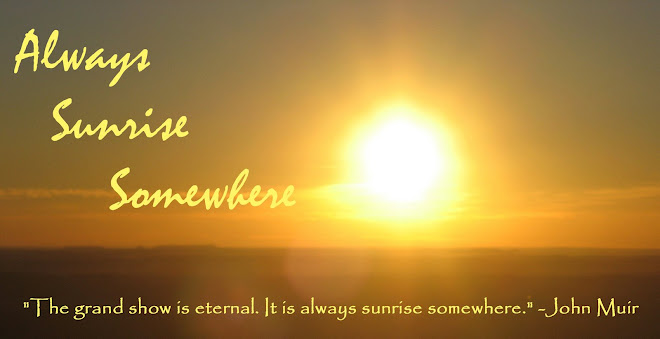
Some who are reading this blog might remember how I shared about Rwanda at an elder board meeting one time at my church. Unbeknownst to me, I accidentally started talking about Rwanda's mountain gorillas as I brought up a slide of Laura Bush (who at that time had recently visited Rwanda). The whole room erupted into raucous laughter, and I remember wanting to disappear into the carpet. I thought people would forget all about it, after, say three years (it's almost been that), but no! Someone brought it up when I ran into them a month ago at church. Ah, the embarassment!
So you might understand why I am a little wary now to talk about gorillas, but I'll give it my best shot. If you ever come visit Rwanda as a tourist, you may be told to go straight to the northern part of the country; one of the most tourist-friendly destinations in the country is Virunga Volcano National Park, home to the mountain gorillas.
One of the only places in the world that you can trek into the wilderness, led by a guide, and have a close encounter with the renowned mountain gorillas in the wild is located in this national park. The park spills over into the Congo and Uganda, but I have heard nothing but rave reviews from people I've known who have entered the park from Rwanda. Without exception, everyone I've talked to has seen several gorillas at close range, and speaks enthusiastically about the experience. One visitor even told me how her group watched a very heated exchange, from just a few feet away, between a male silverback gorilla, who wanted to lead his gorilla family one direction into the forest, and two big female gorillas, who wanted to go the other way. (In the end, the females won the argument, apparently. Not a fair fight, perhaps.)
The 1980s movie, Gorillas in the Mist, took place in Rwanda, chronicling the life and death of the anthropologist Dian Fossey who was working to protect the endangered animals. Today, there are only about 350 such mountain gorillas. It is very common to find the gorillas traveling together in groups, usually one lone male, two or more adult females, and all the offspring. A clear hierarchy is marked in the group: the silverback gorilla (or, oldest male) is typically the leader, and then the females fall into line behind him according to how long they've been part of the group. The children are usually ranked by age.
Tour guides here are very sensitive to the lifestyle of the gorillas, and tour groups are kept to a minimum, limited to small groups for short periods in the early morning hours. If you'd like more information, please visit http://www.rwanda-gorillas.com
Give me a heads-up if you think you might be interested in coming over to see the gorillas...I'd love to see you! But be sure to save your pennies. The cost of visiting the mountain gorillas for one hour in the misty morning is $500 for non-Rwandan residents. (And $40 for Rwandan citizens.)

(Thanks to Matthew Ayers for this photo, taken in the Rwandan forest where the gorillas reside)








